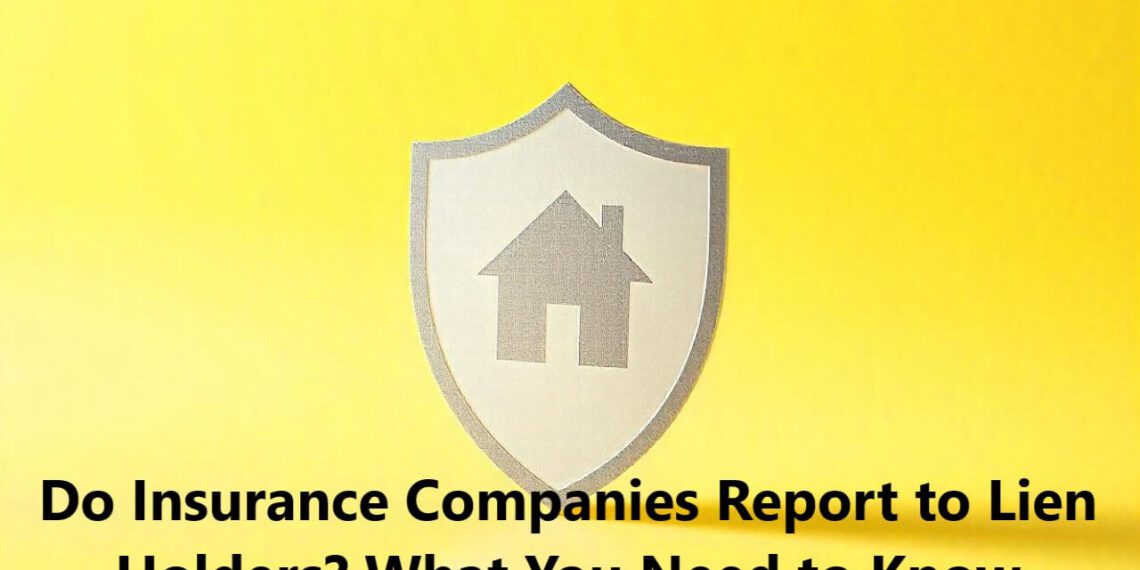If you buy a car or other financial loan, the insurance companies/linquishers connection is very important.
The lienholders (usually a bank or credit union) hold a financial interest in the vehicle/equipment until your loan is settled. But does insurance make their reporting to lien holders, and if so, what do they do to you? So let’s get into it.
Learning About Lien Holders and Their Function
Lien holder: Lien holder refers to the bank or credit union that provided the loan for your car or other asset purchase. They have legal title to the asset until the debt is paid in full. That way they can get back their investment if you do not pay.
Insuring the complete & collision insurance is one thing you should have if you’re paying off your car. This ensures that the lien holder doesn’t lose out on his or her claim should the car be hit, stolen, or damaged.
Are Insurance Companies Informed by Lien Holders?
Yes, insurance companies report certain information to lien holders, but what they report is dependent on your contract and local law. The message basically states if the lien holder has an interest, it is their interest to be protected.
What Insurance Companies Report
Proof of Insurance:
If you buy insurance for a car you finance, your company will notify the lienholder with proof of coverage. This includes details like:
- Policy start and end dates
- Limits of coverage (liability, collision, comprehensive)
- Deductibles
Policy Changes or Lapses:
If you cancel or fail to renew your policy, the insurance company has a responsibility to notify the lienholder. It gives the lien holder the option to act, like obtaining “force-placed insurance” (a very expensive policy billed to the guarantor).
Claim Notifications:
You may be able to have your car insured, but if an accident does happen and your financed vehicle is totaled, your insurance company may inform the lienholder so that settlement can be in their financial interest. When a property is totally destroyed, the lienholder gets paid first from the insurance.
How Do Lien Holders Report Insurance Information?
The reporting mechanism keeps their money protected. A lender who does not have adequate insurance risks losing the loan if the asset is lost, stolen, or otherwise compromised.
Key Reasons for Reporting
- Risk Reduction: Lien holders want to be confident that their collateral is covered in the event of an accident.
- Enforcement of Loan Terms: Reporting keeps loan borrowers in compliance.
- Protect Your Funds: Insurance payouts for wrecked vehicles are sent to lien holders first, and they absorb the balance.
But What If Coverage Falls Off?
If your insurance lapses and your lien holder is notified by the insurance company, here’s what may happen:
Force-Placed Insurance:
The lien holder can get insurance for you and charge it on your loan. Force-placed insurance is more expensive and covers only a few things.
Loan Default Risks:
Failure to have the appropriate insurance can violate your loan agreement and ruin your loan.
Reinstatement Costs:
Getting coverage back after a lapse could incur a penalty or premium increase.
What To Do to Keep Lien Holder Reporting From Error
Maintain Required Coverage:
Keep up with the minimum insurance standards stated on your loan contract.
Update Contact Information:
Keep your lien holder’s name and address up to date with your insurance company. Incomplete or obsolete data delays the report.
Monitor Policy Renewal Dates:
Remember to keep track of when your policy is due to expire so you don’t skip out.
Pick a Company that Has Good Reputation:
Some insurance companies do a really good job of responding to lien holder correspondence and get you up to speed quickly and don’t give you any hassle.
Some Common Typical Situations Among Insurance Company and Lien Holders
Total Loss Settlement:
Your insurance premium will first go to the lienholder if your financed car is deemed a total loss. If the cash out is more than your current loan, you’ll get the extra. But if it’s less, you’re on the hook for the difference if you don’t have GAP coverage.
Changing Insurance Providers:
When you move insurance companies, your new company needs to notify the lien holder of the new policy. Ensure full coverage at all times during this process.
Claims for Repairs:
The lien holder may ask for evidence of proper use of the insurance money to make repairs. This leaves the car with collateral.
Key Takeaways
- The insurance companies do report to lien holders, in terms of coverage evidence, policy expiry, and claims.
- Lien holder reporting preserves the financial interest of the lender in the collateralized loans.
- The key to not having a headache is to have uninterrupted and good insurance.
If you know the nature of insurance company-lien holder relationships, you will be able to stay on top of the loan conditions and keep your finances intact. Communicate regularly with your insurance company and lienholder to prevent confusion and protect your property.






